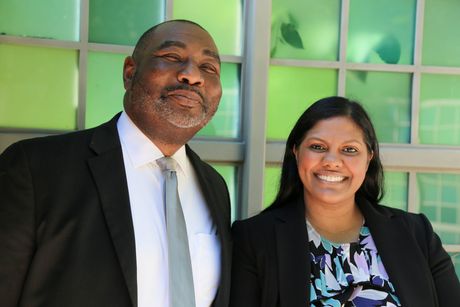Education and the Law

As a participant in the special education arena, I am often asked what is special education law and why is it so important that public schools be required to follow it? To answer these questions one need only look back at our recent past. Less than fifty years ago persons afflicted with serious illnesses and life altering physical and mental conditions were thought to be uneducable. The mere mention of a physical or mental deficiency, deformity, or disabling condition often meant that a child that may otherwise have enormous potential would go without the opportunity to receive a flee public education. A free public education is not a right granted by the United States Constitution, but rather it is a right granted by most state constitutions. For example, the State of North Carolina in ratifying its state constitution included the following language in Article IX:
"Section 1. Education encouraged. Religion, morality, and knowledge being necessary to good government and the happiness of mankind, schools, libraries, and the means of education shall forever be encouraged.
Sec. 2. Uniform system of schools. (1) General and uniform system: term. The General Assembly shall provide by taxation and otherwise for a general and uniform system of free public schools, which shall be maintained at least nine months in every year, and wherein equal opportunities shall be provided for all students. (2) Local responsibility. The General Assembly may assign to units of local government such responsibility for the financial support of the free public schools as it may deem appropriate. The governing boards of units of local government with financial responsibility for public education may use local revenues to add to or supplement any public school or post-secondary school program.
Sec. 3. School attendance. The General Assembly shall provide that every child of appropriate age and of sufficient mental and physical ability shall attend the public schools, unless educated by other means." North Carolina Constitution Article IX, Sections 1-3, as amended (1971).
The
original North Carolina Constitution was ratified in 1776 and amended in 1886
and 1971. Like many states, North Carolina determined that education
should be “encouraged,” as it is a means of growing
a vibrant state economy and developing citizens
prepared to meet the needs
of a changing society. Hence, the state constitution created a
“general and uniform system” of education and “free public schools .. . wherein equal opportunities shall be
provided for all students .. .
provide[d) that every child of appropriate age and sufficient mental and
physical ability shall attend the public school.” Prior to the late 1960’s and
early 1970’s many states did not require that there be equal
opportunities for all students. The term “sufficient mental and physical
capacity” became a calling card of the 1970’s
and 1980’s
as school systems,
courts, states, and society began to address
what it meant to have sufficient capacity
to be educated. The state
policy of North Carolina that “[a]ll children can learn,” became the rule
rather than the exception. The North Carolina General Assembly said it thusly:
"The General Assembly believes that all children can
learn. It is the intent of the General Assembly that the mission of the public school community is to challenge with high expectations each child to learn, to
achieve, and to fulfill his or her potential. With that mission as its guide, the State Board of Education shall adopt a Basic
Education Program for the
public schools of the State." N.C.G.S. §115C-81(a).
This policy shift was in direct response to the national and state civil rights movements in public education between the mid 1950’s and early 2000’s. All children could learn and for the first time the state had “high expectations” for each child to learn, achieve, and “fulfill his or her ‘potential.” The language that once prohibited some children from receiving a free public education, i.e., “sufficient mental and physical capacity,” had been tempered by the aforementioned proclamation of the North Carolina General Assembly.
Bowens & Averhart, PLLC has grown! We welcome the opportinity for you to visit Wallis, Bowens, Averhart & Associates, PLLC. Our Practice Areas are below
Using the Law to Meet Our Clients Goals
Call Us
Convinent location

About Us

Our Services

